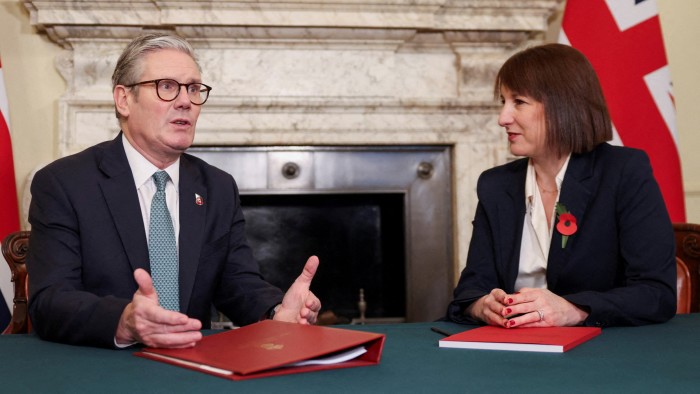Unlock the Editor’s Digest for free
Roula Khalaf, Editor of the FT, selects her favourite stories in this weekly newsletter.
If talking about growth delivered it, Britain would be supersized. But the cash-strapped, tax-raising government is still scratching around for ideas that can make a difference. Its abrupt replacement of the chair of the antitrust regulator last week gives the impression that a looser approach to competition enforcement is in its sights. It is not a good look.
Forcing out Marcus Bokkerink, the chair of the UK Competition and Markets Authority, might be intended to send a message about Britain’s openness to investment. Complaints that it was closed for business were hurled around in 2023 when, unlike peers, the watchdog initially blocked Microsoft’s takeover of the gaming developer Activision Blizzard.
After a modified version of the deal was approved, Microsoft described the CMA as “tough and fair”. Even so, the government is doubtless anxious to hear fewer complaints from potential investors about the regulator. The return to power of a US president intent on defending American interests abroad is another salient factor. The EU is wondering whether to adjust or scale back its own tech probes.
Sir Keir Starmer’s government may want to go no further than a symbolic change of leadership and rhetorical flourishes about “supercharging” the economy with pro-business decisions. If it does want to consider changes to competition policy it would not be alone. A new team of US trustbusters is expected to relax the tough approach to dealmaking imposed under Joe Biden, though a return to traditionally conservative antitrust policies is not guaranteed.
In Europe, former European Central Bank governor Mario Draghi argued that domestic champions should be allowed to bulk up to compete with Chinese and US giants in last year’s blockbuster report on EU competitiveness. He favoured consolidation in the telecoms sector to give companies the muscle to invest, although sceptics say there is little evidence that telecoms mergers boost investment.
The CMA is well aware of the trade-offs. It noted that intense competition can be detrimental to innovation, in research published earlier this month. Last year it gave the green light to the Vodafone-Three UK joint venture, on condition it committed to certain infrastructure investments. It has also signalled a willingness to approve mergers on the basis of behavioural, rather than structural, remedies.
Overall, it is hard to argue the CMA takes an overly aggressive approach. The number of mergers it investigates that are rejected or abandoned is small and falling. The UK has seen a modest weakening of competition, measured by cost mark-ups, over the past 25 years.
Ministers should avoid giving the impression they want to influence competition decisions. Keeping powerful incumbents in check can help other businesses flourish. Antitrust enforcement is generally a spur, not an impediment, to growth and productivity gains. Moreover, competition policy should be stable and predictable. Political interference fuels uncertainty, and there is little that businesses hate more.



